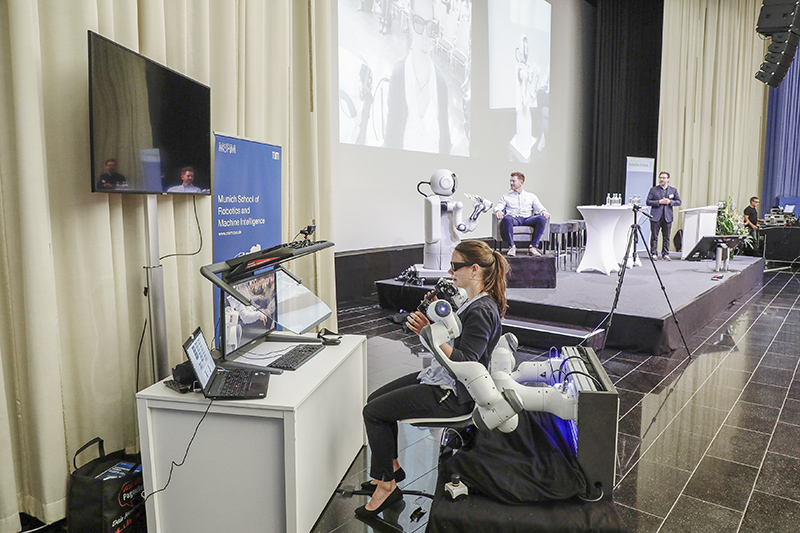Professor Sami Haddadin, Director of the Munich School of Robotics and Machine Intelligence at the Technical University of Munich, started with a historical introduction to the subject. The Dartmouth summer research project on artificial intelligence (AI) in 1956 was the birth of AI as a discipline. Cognitive improvements in AI were acknowledged after the first victory of AI over the chess champion Garry Kasparov in 1997. Interestingly, the opponent’s moves had to be made by a human following computer’s instructions. The remarkable contributions of Leonardo da Vinci and Gottfried Wilhelm Leibniz to the evolution of robotics were highlighted, a robot being defined as an AI with a body.
Looking at the economic and ethical aspects of AI, small and medium-sized enterprises must outsource if no automation is possible. The fast-moving technology of robots leads to the unavoidable necessity for ethical considerations. The current use of robots in the automobile industry is therefore linked with measures to ensure safety and the need for qualified humans who know how to use them as efficient tools. Accordingly, robots with learning capabilities and motion control can create new work opportunities.
The flagship initiative ‘Geriatronics – Robot Assistants for the Elderly’ was presented in form of a live telemedicine check-up with the support of GARMI, a robot intended for pilot use in flats in Bavarian Garmisch-Partenkirchen. This learning robot with sensorimotor function should be able to assist the elderly in daily life activities. Of course, long-term studies will still have to prove the benefit of such interventions. Professor Haddadin highlighted that the current situation is human plus machine, not human against machine and that in the long-term, robotics can be a tool to achieve sustainable development goals.

Live demonstration of GARMI. Source: German Ethics Council/Photo: Reiner Zensen
